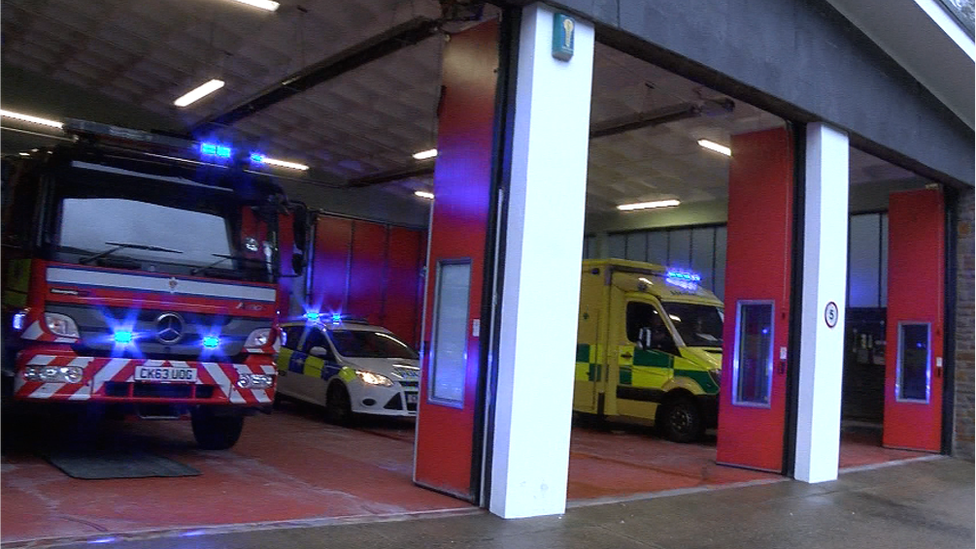Deliberate grass fires in Wales fall 50% after school talks
- Published

South Wales firefighters tackled grassfire in Rhondda Cynon Taff in 2015
The number of deliberate grass fires in Wales has halved in the last year after education work and bad weather, new figures have shown.
About 1,300 grassland, woodland or crop fires were started on purpose in 2016-17, according to annual Welsh Government statistics, external.
This was down from the 2,603 deliberate fires started in the 12 months before.
The Welsh Government said the reduction was "testament" to the hard work of emergency services.
The drop comes after a rainy April, while more than 96,000 primary school children were given talks by police and firefighters about the consequences of starting grass and mountain fires in Wales last year.
In April 2015, children as young as 11 were arrested after hundreds of blazes destroyed acres of countryside in south Wales.
Two people were injured during the spate of deliberate fires, which previous reports also suggested may have been started by farmers and landowners.

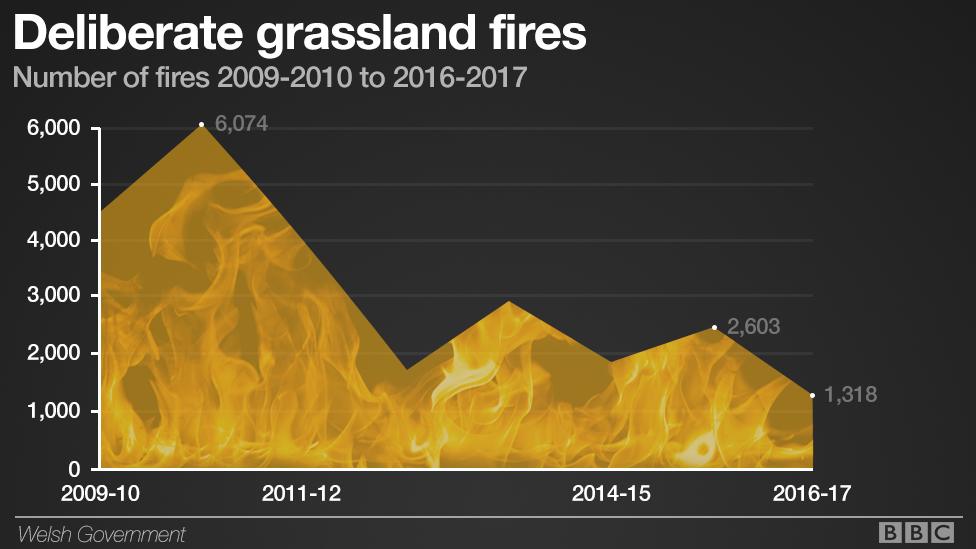
The annual fire report also showed:
The number of fires in Wales has fallen for the last 10 years by 56%. They have also gone down 11% in 2016-17, compared to 2015-16.
Between April 2016 and March 2017 Welsh crews attended 36,790 incidents - an increase of 1% compared to the year before.
In the same period 19 people died in fires in Wales, while 621 people were injured.
Blaenau Gwent had the highest number of arsons, with 84% of all fires started deliberately, while Ceredigion had the lowest with just 9% started on purpose.
The number of hoax calls to the fire service has fallen by 87% since 2001-2, from 3,484 to 441 last year.
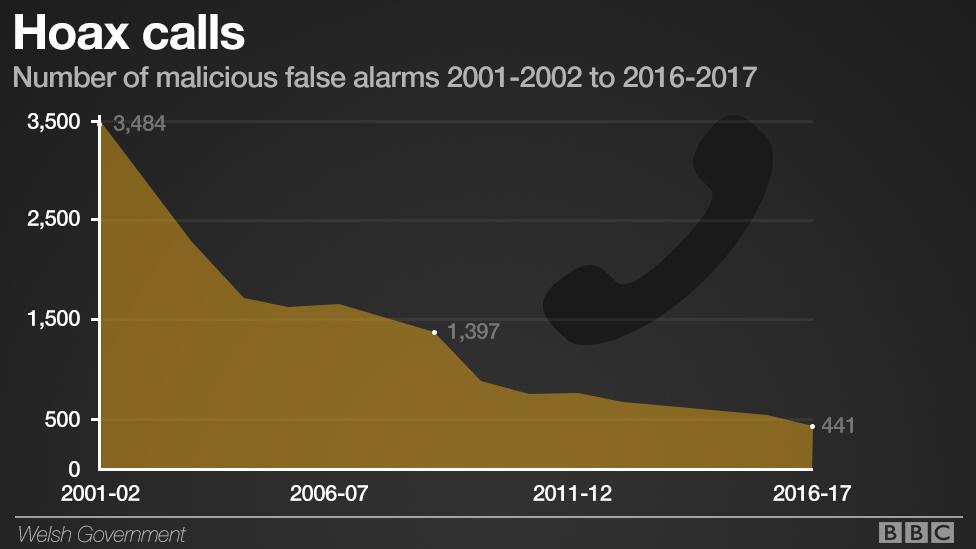

The report said the highest number of grass fires were started in April, when fire crews attended 324 grass, woodland and crop blazes - the lowest for the month since records began.
The weather may have played a part in the decrease, with 21% fewer hours of sunshine and 150% more millimetres of rain, compared to April 2015.
Mydrian Harries, head of prevention and protection for Mid and West Wales Fire and Rescue Service, said arson put the lives of emergency services at risk and wasted valuable time and resources.
"By working with our partner agencies and our communities, our aim is to encourage a cultural shift across Wales so that arson is seen as socially unacceptable by all," he added.
"We will take action to support this positive and lasting cultural change to create a Wales that we all want to live in, work in and to visit now and in the future."

Firefighters previously tackled a blaze in Ynyshir, Rhondda Cynon Taff
The Welsh Government - which is responsible for fire services in Wales - said the timing of Easter holidays could also be a factor.
A spokeswoman said: "Along with the three fire and rescue services and the police, we have worked very hard to reduce the incidences of deliberate grass fires.
"It is testament to this work that we have seen such a positive result."
She added: "We are not resting on our laurels and will continue to work to the best of our ability to reduce this type of fire."
The figures also showed that response times to house fires in north Wales had declined in the last seven years, with crews taking more than 15 minutes to respond to 17% of calls, compared to 8% in 2009-10.
A spokeswoman for North Wales Fire and Rescue Service said response times were "inevitably slower" as the area was more rural and the closest available resource was always sent to a call-out.
She added: "It is increasingly difficult to recruit retained firefighters, particularly in some areas. However, our service has been working hard to recruit more in these areas over 2016/17."
- Published17 February 2017
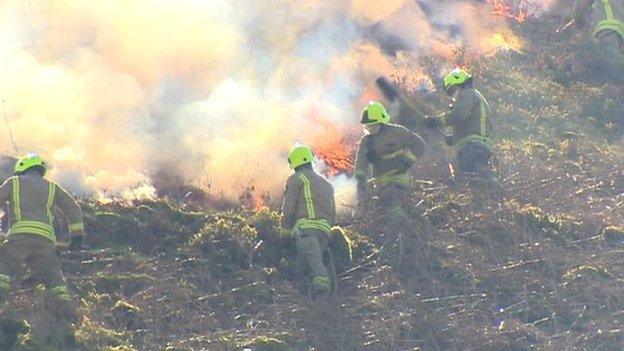
- Published23 April 2015
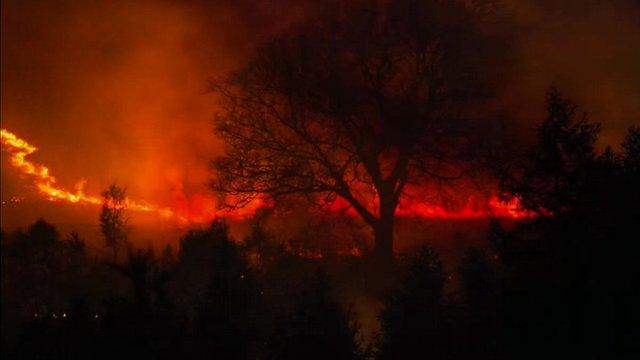
- Published3 January 2016
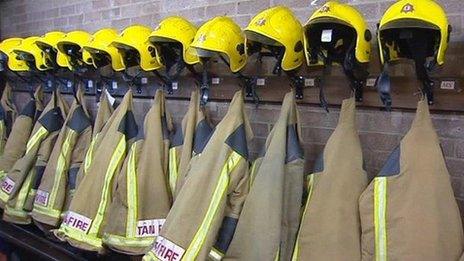
- Published13 February 2017
